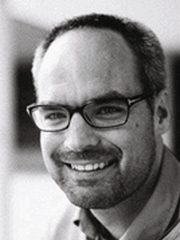World Genealogy
Presenting, Documenting, and Instrumentalizing Lineages in Early Modern Asia, Europe, and the Middle East
DFG Research Grant
2023–2026
Genealogy is a basic social practice in many cultures. Across time and space, human societies establish practices and media for cultivating and presenting knowledge about past and present kin in explicit form. Humans do so for a wide range of reasons and motives, often connecting social, political, or religious privileges to imagined or real bloodlines.
While Muslim societies, for instance, tied tax exemption to genealogical descent from the Prophet, European dynasties connected the right to rule over territories and states to genealogically determined relationships between outgoing and incoming princes. Meanwhile, in the Tang-era in medieval China, the imperial aristocracy’s political and social dominance depended greatly on officially sanctioned and registered genealogies.
While the specific practices, media, and functions of making, presenting, and deploying explicit knowledge about kinship (‘genealogy’) vary in all these contexts, there is still much common ground: all these examples demonstrate that humans care, in ways largely unparalleled in the animal kingdom, for groups of individuals considered as ‘family’ or ‘kin’ that extend beyond the small group of biological parents and immediate caretakers. Humans frequently cultivate knowledge about this extended group of ‘relatives’, and they often do so in genealogical ways, that is, by highlighting relationships of descent. ‘Ancestrality’ (Hans Ruin) is a basic feature of human existence, and genealogy is one of its most important manifestations.
‘World genealogy. Presenting, documenting, and instrumentalizing lineages in early modern Asia, Europe, and the Middle East’, which is a package of our four projects funded by Deutsche Forschungsgemeinschaft (DFG), takes a first step towards a larger collaborative effort to investigate genealogical cultures across time and space. Three of these projects are led by members of the Cluster of Excellence ‘Understanding Written Artefacts’ at Universität Hamburg; the fourth project is located at Universität Bonn.
- Steffen Döll (Buddhist Studies/Japanese Studies, Universität Hamburg): ‘Zen Buddhist Genealogical Diagrams in Early Modern Japan: Representations of Religious Authority, Implementations in Social Practice, and Transmissions of Knowledge’;
- Markus Friedrich (European History, Universität Hamburg): ‘“The Gotha” – A Study of the Most Important Genealogical Reference Work in Modern Europe’;
- Barend ter Haar (Sinology, Universität Hamburg): ‘Making Genealogy in Late Imperial China: The Self-representation of Rural Elites in Huizhou’; and
- Evrim Binbaş (Islamic Studies, University of Bonn): 'Dynastic Genealogical Trees in the Early Modern Period: Visualizing Historical Imagination and Political Legitimacy in the Islamic World'.
More information on the individual projects is available here:
Contact at CSMC

University of Hamburg
Faculty of Humanities
4. Arbeitsbereich Europäische Geschichte
Von-Melle-Park 6 #5
20146 Hamburg
Office
Phil-Turm
Room C13007
Contact
Tel: +49 40 2395-24842
Email: markus.friedrich"AT"uni-hamburg.de
